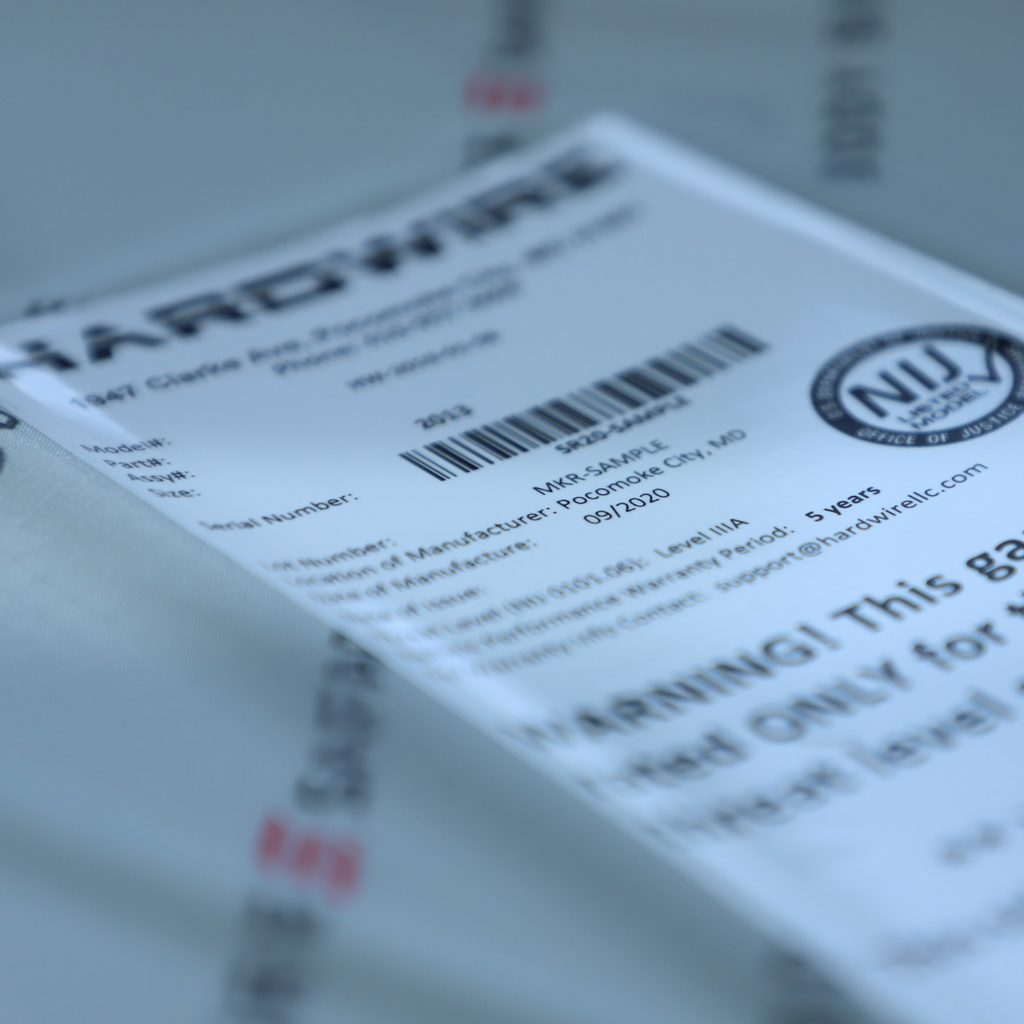Does Body Armor Expire?

Does body armor expire? In short, yes, body armor does expire, but not all body armor is equal. Hardwire LLC utilizes Dyneema.
About Dyneema:
Our Dyneema Soft Body Armor has a 5 year warranty and our Hard Body Armor has a 10 year warranty. Dyneema is the only man-made fiber stronger than spider silk, coming in at 15X stronger than steel. It is neutrally buoyant, waterproof, moisture-wicking, breathable, and will not delaminate due to moisture. Kevlar on the other hand will begin to disintegrate with element exposure and is only 5X stronger than steel. Our Dyneema soft body armor is the industry’s lightest soft body armor on the market.
Dyneema VS Kevlar
|
Kevlar® |
||
|
Tensile Strength |
3600 MPa (15X stronger than steel) Lighter density = higher strength to weight ratio. |
3620MPa (5X stronger than steel) |
|
Temperature Regulation |
Breathable, moisture-wicking |
Traps air/ non-breathable Absorbs moisture |
*Chart information (Dyneema® Vs. Kevlar®: The Ultimate Showdown 2017) What does this chart all mean? It means is Dyneema is better than Kevlar.
At Hardwire LLC®, we label our armor in accordance with the National Institute of Justice (NIJ) that sets the standards for ballistic protection. Most of our products are NIJ certified and will contain this specification within the product features on our website.

Grades of armor
Manufactured by Hardwire LLC® and what they can and cannot stop:
|
Level 2 |
Level 3A |
Level 3 |
|
|
Handgun |
YES |
YES |
YES |
|
Shotgun |
NO |
YES |
YES |
|
Assault Rifle |
NO |
NO |
YES |
|
Armor Piercing |
NO |
NO |
NO |
|
Stabbing |
NO |
NO |
YES |
Our NIJ certified soft body armor comes in NIJ Level 3A whereas our hard body armor comes in NIJ Level 3. We also offer School and Office products as well as consumer/ family products for civilians looking for at-home protection. We offer bag inserts, clipboards, and emergency response shields.
What level of protection do I need?
The most common weapons used in mass shootings are handguns, rifles, and shotguns. According to FOX31 Denver, “Semiautomatic handguns are more common. They were used in 67% of mass shootings, and the sole weapon used in 40% of mass shootings. If taken together with revolvers, handguns are used in 86% of mass shootings. Since semiautomatic handguns are more common than other weapons types, they have produced the most deaths.” (Summers, 2021). Statistically, Level 3A is typically sufficient; however, if you desire rifle protection, Level 3 is your best option. Level 3A, which protects against handguns and shotguns, is the grade we use for our soft body armor, which is the armor industry's lightest soft body armor. This NIJ Level 3A armor is the typical protection level that law enforcement and police officers use in their day-to-day bulletproof vests.
Sources:
Dyneema® Vs. Kevlar®: The Ultimate Showdown. Superior Glove. (2017, March 30). https://www.superiorglove.com/blog/dyneema-vs-kevlar#:~:text=The%20strength%20of%20both%20materials,strength%2Dto%2Dweight%20ratio.
Summers, D. J. (2021, March 26). Assault weapons are one-third as common but twice as deadly as handguns in mass shootings. FOX31 Denver. https://kdvr.com/news/boulder-grocery-store-shooting/assault-weapons-are-one-third-as-common-but-twice-as-deadly-as-handguns-in-mass-shootings/.


